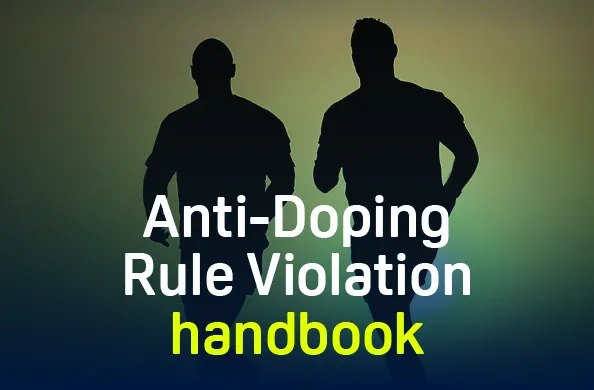The process at a glance
Test or possible breach
Following a positive test for a banned substance or any other alleged anti-doping violation, we can investigate further.
Importantly, we can respond to intelligence information and investigate athletes as well as support personnel such as coaches, physiotherapists, doctors, team managers at any time without them knowing.
Notification
When an alleged breach is identified, you and your sport are formally notified. If you have returned a positive test, at this point you can choose to have your B Sample analysed to check it matches the A Sample. During this process, you will have the opportunity to submit any evidence to support your case.
Reviewing evidence
We examine all credible allegations or information about doping in sports with a relevant anti-doping policy. However, sometimes this is not enough. So, we conduct an investigation to gather sufficient, reliable and admissible evidence to prove or disprove a possible breach.
Letter of Charge
Once our investigation is complete, and if we are satisfied you have committed an Anti-Doping Rule Violation (ADRV), you will be issued a Letter of Charge, including details of your case and a proposed sanction. You have the right to contest this decision.
Hearings
If you disagree with the decision, or sanction, you may seek a hearing. Depending on your circumstances this could be with the National Sports Tribunal, your sport's own tribunal or the Court of Arbitration for Sport. Timeframes for the process can vary. Every case is unique. Factors, such as hearings and appeal periods, can influence the direction and length of a case.
Sanction decision
When a decision is reached, your sport, will impose the determined sanction or other consequences.
Publication
Once the process is finished, we and your sport are required to publicly announce it. At a minimum, this requires posting the information on our website.
Published details will include your name, sport, the ADRV, the substance and the sanction.
Athlete Anti-Doping Rule Violation handbook
The possibility of being banned from sport for doping can be confronting and overwhelming. This handbook explains the process, what it means and resources available to you.

How long does an investigation take?
The ADRV process can be complex and can extend to months, not just weeks. Investigations can take a long time and that can be influenced by:
-
The complexity of the alleged ADRVs
-
The level of assistance provided by relevant parties, such as athletes and their legal representatives
-
New lines of inquiry as information is received (which can result in protracted investigations).
We have a duty of care to be both thorough and accurate in every step of the process.
Allegations of doping can affect the reputation and career of an athlete or support person. To protect their rights, we will not discuss the specifics of an ongoing case or investigation, unless a situation warrants it.
Ultimately, our investigations are about protecting athletes, as well as ensuring Australian sport is free of doping. We seek to protect the health of young people participating in sport. We act so that drug and substance experimentation does not become a normal activity in sport.
Disclosure Notices
Disclosure Notices are key to enhancing to our intelligence-gathering and investigation capacity. These are legal documents that require a person to do one, or more, of the following:
- attend an interview to answer questions
- give information
- produce documents or things (for example, a phone or computer).
A Disclosure Notice is not voluntary, You must comply or face penalties.
Substantial Assistance
If you provide information that helps in the investigation of others for doping offences, such as how the doping activity occurred and who else may be involved, you could be eligible to have part of your sanction suspended.
This can also apply if you provide information which leads to criminal charges or disciplinary action being brought against others (for example if a doctor is providing inappropriate prescriptions for performance enhancing drugs).
Admissions about your own violation/s do not qualify as Substantial Assistance.
Any suspension of part of your sanction for Substantial Assistance will be evaluated against the seriousness of your violations and significance of the information you provide.
There are strict rules in the Code and anti-doping policies about the eligibility and application of any possible suspension for Substantial Assistance.
- For more information contact us via email: contactus@sportintegrity.gov.au